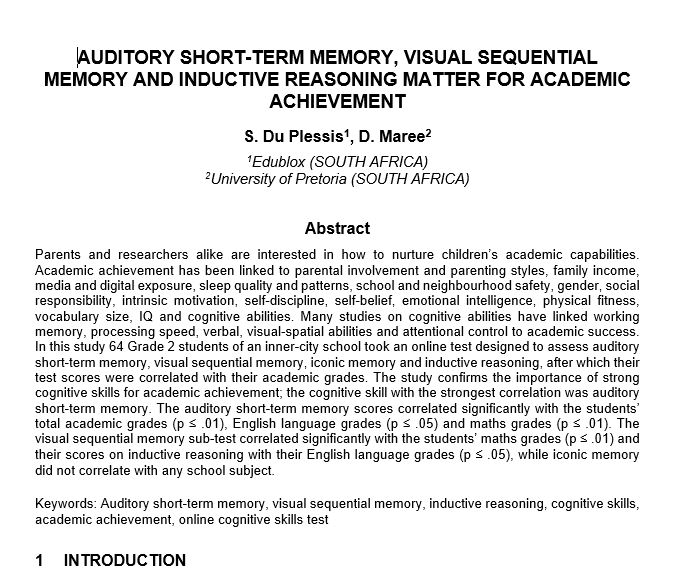
This paper was presented virtually at the EduLearn19 International Conference on New Learning Technologies in Palma, Spain. Read the abstract or click on the image below to read the full paper.
Abstract. Parents and researchers alike are interested in how to nurture children’s academic capabilities. Academic achievement has been linked to parental involvement and parenting styles, family income, media and digital exposure, sleep quality and patterns, school and neighbourhood safety, gender, social responsibility, intrinsic motivation, self-discipline, self-belief, emotional intelligence, physical fitness, vocabulary size, IQ and cognitive abilities. Many studies on cognitive abilities have linked working memory, processing speed, verbal, visual-spatial abilities and attentional control to academic success. In this study 64 Grade 2 students of an inner-city school took an online test designed to assess auditory short-term memory, visual sequential memory, iconic memory and inductive reasoning, after which their test scores were correlated with their academic grades. The study confirms the importance of strong cognitive skills for academic achievement; the cognitive skill with the strongest correlation was auditory short-term memory. The auditory short-term memory scores correlated significantly with the students’ total academic grades (p ≤ .01), English language grades (p ≤ .05) and maths grades (p ≤ .01). The visual sequential memory sub-test correlated significantly with the students’ maths grades (p ≤ .01) and their scores on inductive reasoning with their English language grades (p ≤ .05), while iconic memory did not correlate with any school subject.




